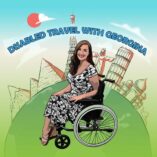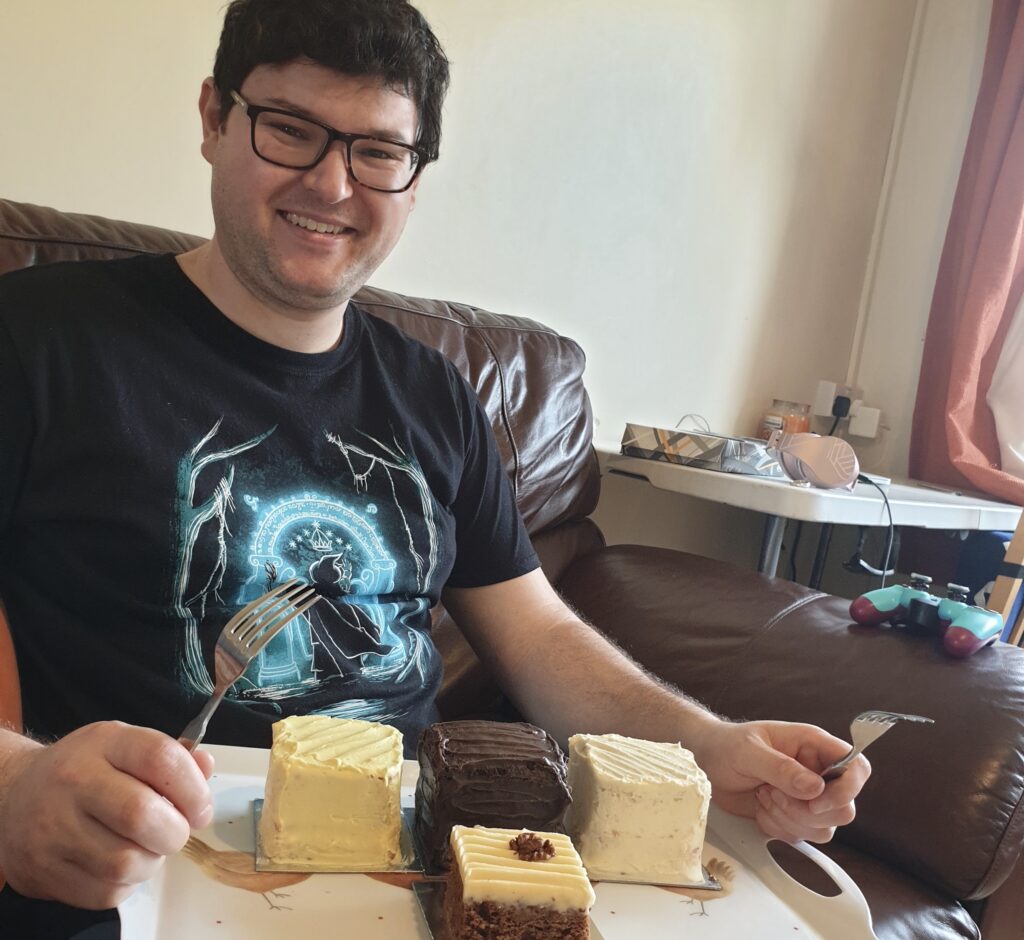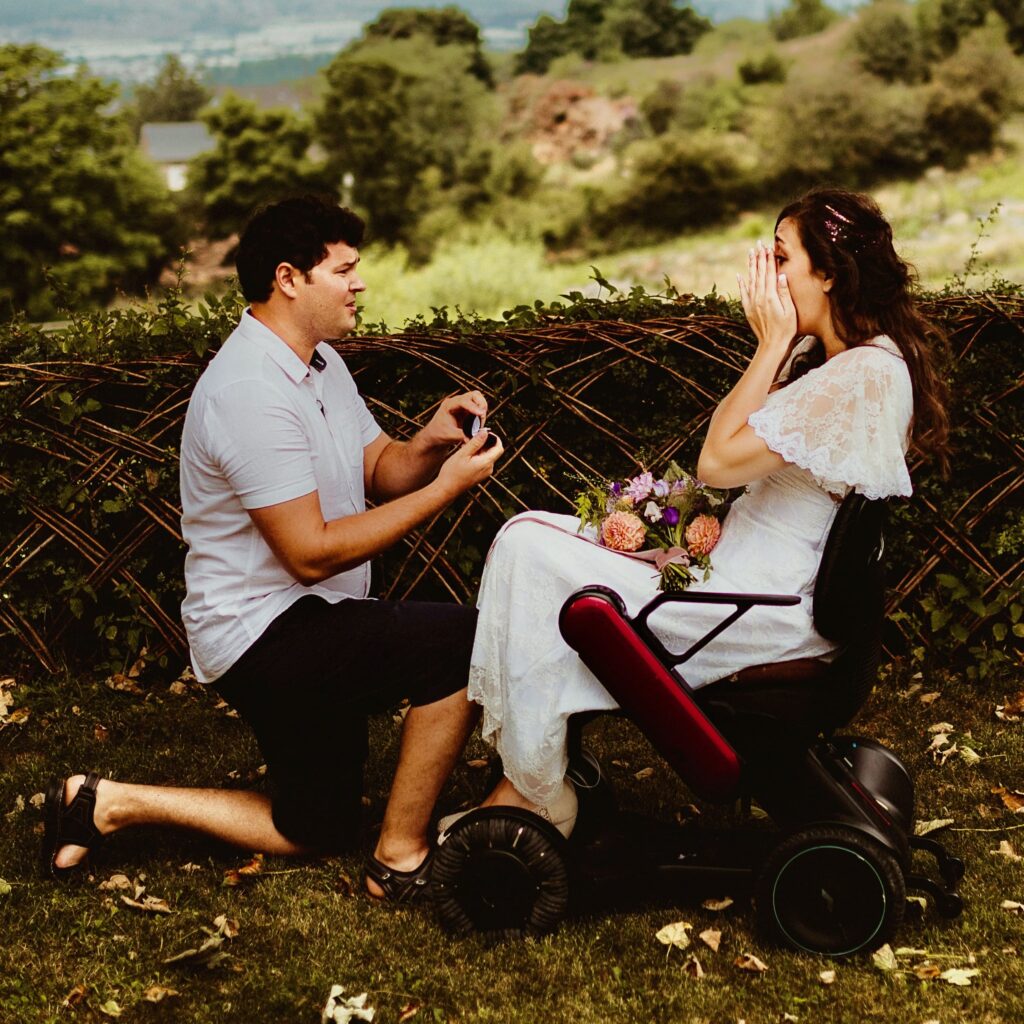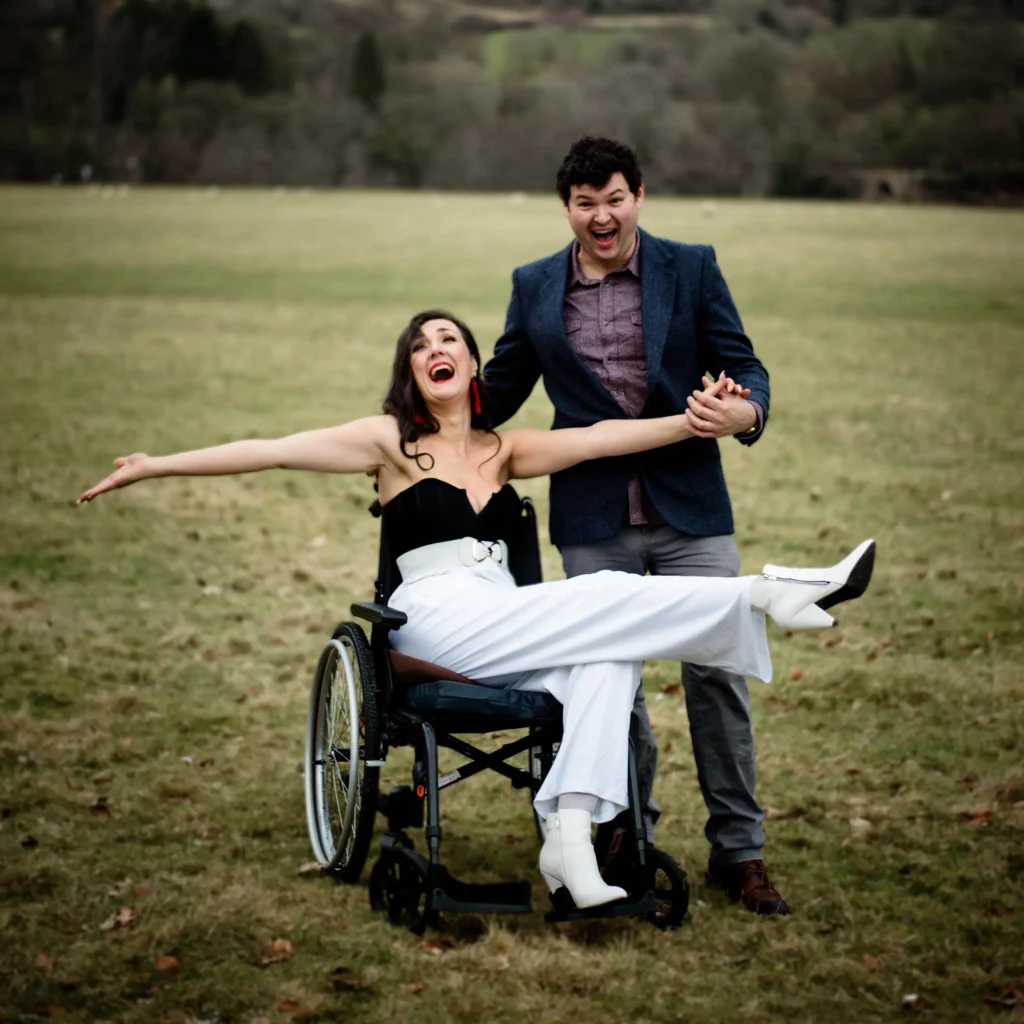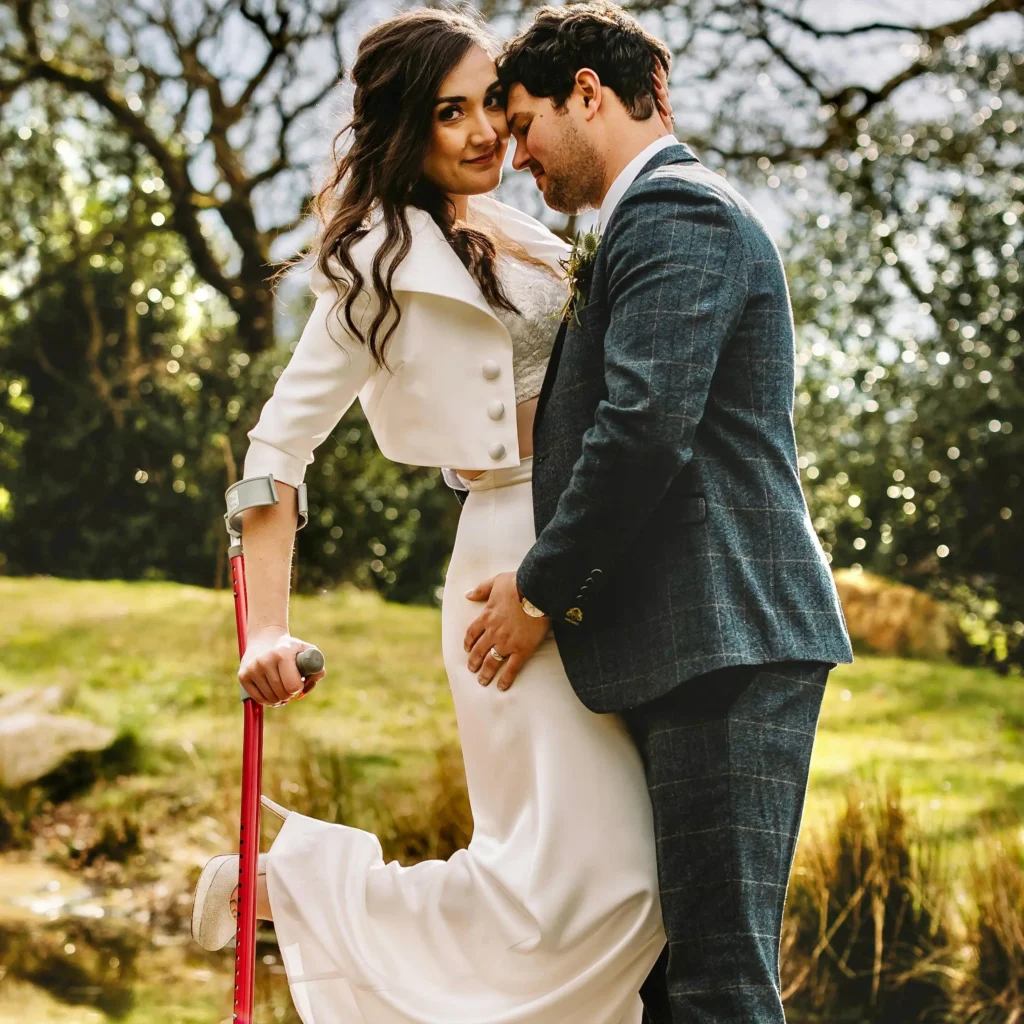Wedding planning is an absolute nightmare at the moment for any bride or groom since we are in the middle of the Covid19 pandemic and at the end of the lockdown period. Things have therefore been slow on the wedding planning front for me if I’m honest as it’s very hard to choose a caterer without being able to actually taste their food or to choose a wedding dress without trying it on! I am thrilled that things are moving online though and that many bridal suppliers, vendors and shops have moved to video consultations and posting products out for brides-to-be to sample! This is absolutely brilliant for the disabled community as we have good days and bad days with our health so travelling an hour down the road to meet a supplier for a consultation is sometimes a real struggle! For me personally, I find that car travel really increases my nerve pain, nausea and fatigue – a recipe for disaster rather than a recipe for the perfect wedding cake!!
Enjoy this photo of something my partner, Richard, and I did manage to move to a remote experience successfully – cake tasting!! Although I can’t keep solid food down, I still enjoyed the cake!
Despite many of my consultations moving online, I have still somehow managed to meet with quite a lot of barriers with suppliers – specifically in terms of how they have responded to my needs as a disabled/ chronically ill bride. Therefore, I wanted to have a little natter about a couple of the problems and how I combatted them. I hope this might help improve a couple of suppliers, but also to raise awareness of a few of the issues you might face if you have a disability and are planning for your own wedding.
- General Fear
Ok, so this heading sounds really dramatic and rather like I am heralding some doom and gloom, apocalyptical wedding scenario. What I really mean is that I have found so many suppliers have had a strange distance or fear surrounding my disability and questions about it.
For example, when booking photographers, I found that some didn’t reply or send a cryptic reply saying “I have no experience shooting brides in wheelchairs, I would recommend… (this other company)”. I suppose my worry here is that a photographer is unlikely to ever gain experience with someone with disabilities if they are afraid to take the leap and have that first client. Obviously, some photographers have certain styles that they are very set in so I wouldn’t perhaps be suited as a client to an active photographer who specialises in “action shots” of couples jumping or running towards the camera. However, even these shots can be adapted to perhaps be my husband-to-be (eeeek!), Richard, jumping in the air and my raising my arms simultaneously or even “running” towards the camera in my powered chair. Sometimes you need to take that leap of faith and break the ice with your first disabled client – just make sure to ask them what actions he or she feels comfortable doing and just communicate with your bride or groom-to-be throughout the session to check on their comfort and pain levels. Break that ice!
I also felt a lot of fear from photographers in terms of how they would direct me and ask me to model my disabled body, both when we emailed them and when we talked about photography and videography on the day. I understand that disability is such a spectrum so each wheelchair user or gorgeous spouse-to-be who uses a mobility aid of any kind may move in a different way. The thing here is – we’re human too and you can absolutely ask us questions about what we can and can’t do. As long as you’re respectful, most wheelchair users would love to tell you what their movements are like if it means they get better wedding photography to last eternally! If you’re reading this as a chronically ill person who is planning their wedding then I would absolutely recommend reading my previous blog post all about how I communicated my medical needs with my suppliers! Just be as open as you feel comfortable being as this communicative dynamic will allow you to have a more comfortable wedding day with suppliers who understand your needs.
- Downright Ableism
I must admit that some of my negative wedding planning experiences have been less that suppliers are nervous or have implied ignorance and more that we’ve experienced fully ableist comments. Mine actually have predominantly come from the bridal dress shop industry. I’ve been wanting to try a few different styles of wedding dresses on to see which work best with my powered wheelchair and have found a few local Derbyshire shops where I might be able to do this safely (more on this to come in other blogs of course!). However, I’ve found that some of the shops are less than happy to accommodate a wheelchair user…
Unfortunately, this seems to be a trend from some of my followers messaging me on social media. Many of their negative experiences came from the seamstresses or sales staff within bridal dress stores. Disabled brides deserve the same excited, overwhelming joy as any other bride-to-be, not shops with no access and staff that make comments about them not having dresses to suit our wheelchairs. I’ll relay some more stories in my coming blogs about designing my own dress and my experience going into bridal shops and deciding on the silhouette I am choosing!
My own personal experience of upsetting ableism was when my little sister (my Maid of Honour) was emailing dress shops to book a consultation appointment in-store when Covid19 allows us to open up in the UK. We had an email back from a store saying that they were concerned that a wheelchair user would have wheels that ran over their dresses and “ruin them”. I’m not sure what world this store lived in that I had blades all over my wheels to shred through their products but they certainly had a strongly worded reply about inclusivity, access for all and the fact that they cannot refuse service under the 2010 Equality Act. Either way, we won’t be spending any money there ever!
I hate that experiences of discrimination, prejudice and even disarming and upsetting comments seem to be so prevalent in the wedding industry, particularly when shopping for wedding dresses!! I’m so sorry if you’ve experienced things like this before and any of this resonates with you. This wedding series aims to raise awareness of how the wedding industry behaves towards those with disabilities and to move towards changing behaviours that are unfairly biased or only give the spoonie community a limited experience of having that perfect marriage!
